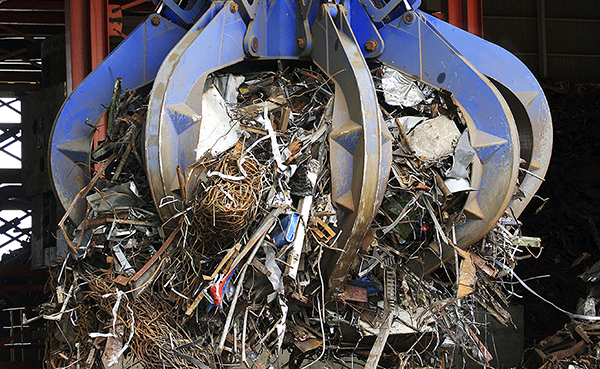
Most economies are unlikely to return to pre-Covid-19 levels before at least 2022, was the conclusion of this week’s Bureau of International Recycling (BIR)’s Convention Week Keynote Session.
According to Stefan Schilbe, Chief Economist at HSBC Germany, most countries will probably fail to return to pre-pandemic levels of activity until 2022. The forecast from Philippe Chalmin, Professor of Economic History at Paris-Dauphine University, was even starker: “It’s not before 2022 – or even 2023 – that we will be back hopefully at the levels we were last year,” he warned.
Chalmin described the events of recent months as “…the most severe economic crisis since the 1930s”. All major countries had been returning negative growth figures – with the notable exception of China.
The commodity “…stars of 2020” had proved to be gold and iron ore. The former climbed above $2,000 per ounce in August but has since dropped to nearer $1,900. The latter broke through $130/tonne as a result of rising Chinese steel production before heading back towards $120/t.
Iron ore prices are expected to dip below $100/t, resulting in a “…slight downward movement in ferrous scrap values,” Chalmin said at the event attended by Kallanish. For the metals markets, in general, including the leading non-ferrous metals, he pointed to surpluses and a belief that China’s recovery had already been factored into values. “I don’t see much scope for a rise in prices,” the professor confirmed.
Chalmin also anticipates a decline in oil prices from around $40/barrel to nearer $30.
Schilbe reported that some economies had been brought “…almost to a standstill” by Covid-related restrictions earlier this year but that a subsequent recovery had been driven by “…economic stabilisation” within China. Investment in this country is continuing to pick up and further fiscal stimuli are anticipated. Monetary policy could be expected to remain “…ultra-loose” in the USA, while a stronger euro could dampen an export recovery in Europe, he added.
Schilbe identified downside risks: a prolonged pandemic; protectionism dragging down world trade growth; high levels of indebtedness as a result of, for example, job support schemes; and bankruptcies and unemployment.
BIR Director General Arnaud Brunet opened the Keynote Session by describing 2020 as “…an exceptionally turbulent if not brutal year”. He warned the next 6-12 months were likely to be “…very uncertain”. Both the IMF and OECD were “…pessimistic about the short-term and medium-term future”, he noted.





